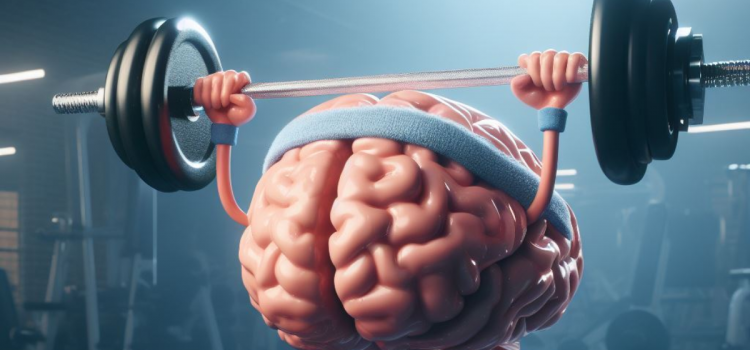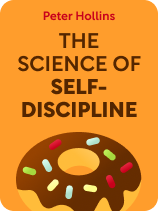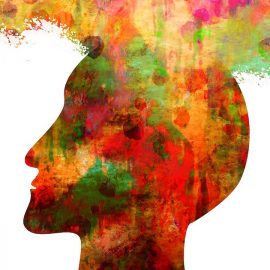

This article is an excerpt from the Shortform book guide to "The Science of Self-Discipline" by Peter Hollins. Shortform has the world's best summaries and analyses of books you should be reading.
Like this article? Sign up for a free trial here.
How is discipline like a muscle? How can you maintain discipline through exercise?
In The Science of Self-Discipline, Peter Hollins says discipline is a muscle that you can develop and strengthen over time. But like any other muscle, over-exercising discipline can lead to exhaustion and burnout.
Continue reading to learn more about why discipline is similar to a muscle.
Why Discipline Is Important
Any goal worth striving for will involve some discomfort. Self-discipline helps us push through discomfort and fleeting moments of motivation to accomplish our goals. For example, if your goal is to write a book, you might set a goal of writing 1,000 words each day. If you use discipline to maintain this routine, you’ll persevere through difficult days when motivation is low and continue making progress toward your ultimate goal.
(Shortform note: When it comes to reaching creative goals, experts such as Seth Godin (The Practice) similarly think that putting in consistent work is the most effective way to encourage creativity. However, in Steal Like an Artist, Austin Kleon argues that another effective way is to surround yourself with art that inspires you. In this way, artistic inspiration serves as the catalyst to drive your work forward. As we’ll discuss in this guide, Hollins also recognizes the importance of creating environments that don’t constantly test your discipline in your pursuit of your goals. However, Hollins focuses on the way environments can drain discipline, whereas Austin Kleon emphasizes that your environment can actually be a significantly motivating force.)
Develop Discipline Like It’s a Muscle
Hollins explains that discipline is a muscle because just like any part of your body you would train to improve, your brain can become more proficient at maintaining discipline through practice. Research shows that certain areas in the prefrontal cortex are involved in your ability to maintain discipline. This is significant because our brains can grow and change through neuroplasticity. Although our brains are most malleable when we’re young, they’re capable of changing into adulthood. Thus, behaving in disciplined ways strengthens new pathways in your prefrontal cortex and makes discipline more automatic. On the other hand, giving into temptation weakens these pathways in your prefrontal cortex, making self-gratifying behaviors more habitual.
(Shortform note: Your ability to rewire your brain and change your habits through discipline means you have the power to shape your lifestyle and work toward your goals. In The Subtle Art of Not Giving a F*ck, Mark Manson explains that realizing you can change your habits gives you a sense of empowerment and accountability for your daily decisions. On the other hand, if you don’t think you have the power to influence your habits, you won’t believe you have a significant role in your improvement and you’ll be less motivated to make decisions that lead you toward your goals.)
Hollins writes that another implication of the idea that we can train our brain like any other muscle is that your brain is also subject to exhaustion from discipline training. Just like too much exercise can overwork muscles in your body, constantly exercising discipline to resist strong temptations can exhaust your will. If you deplete your capacity for discipline by not ever giving yourself a break, this can carry over into other areas of your life. For example, if you force yourself to work nonstop for an extended period, you’ll not only exhaust yourself from overworking, but you’ll likely lose your diligence in areas that demand discipline, such as your diet and exercise routine.
(Shortform note: Over-exerting your willpower not only leads to lapses in discipline, but it can actually make you sick. In The Willpower Instinct, Kelly McGonigal explains that, much like chronic stress, unrelenting discipline demands a lot of energy from your body, making you more vulnerable to illness.)
By practicing discipline without any relief, says Hollins, you can also set yourself up for excessive indulgence. For instance, if you resist using social media for an unsustainably long time, you may reach a breaking point that leads to a TikTok binge or other indulgences worse than you set out to solve by practicing discipline in the first place.
(Shortform note: In The One Thing, Gary Keller explains that to avoid lapses in discipline when it matters most, you should become aware of what activities drain your energy and be more selective about how you distribute your discipline. For instance, he suggests that you do your most important tasks early in the day, when your willpower is fresh.)

———End of Preview———
Like what you just read? Read the rest of the world's best book summary and analysis of Peter Hollins's "The Science of Self-Discipline" at Shortform.
Here's what you'll find in our full The Science of Self-Discipline summary:
- Why changing habits takes far more than creating a routine
- Science-based habits and strategies for maintaining discipline
- How perfectionism holds us back from risk and success






